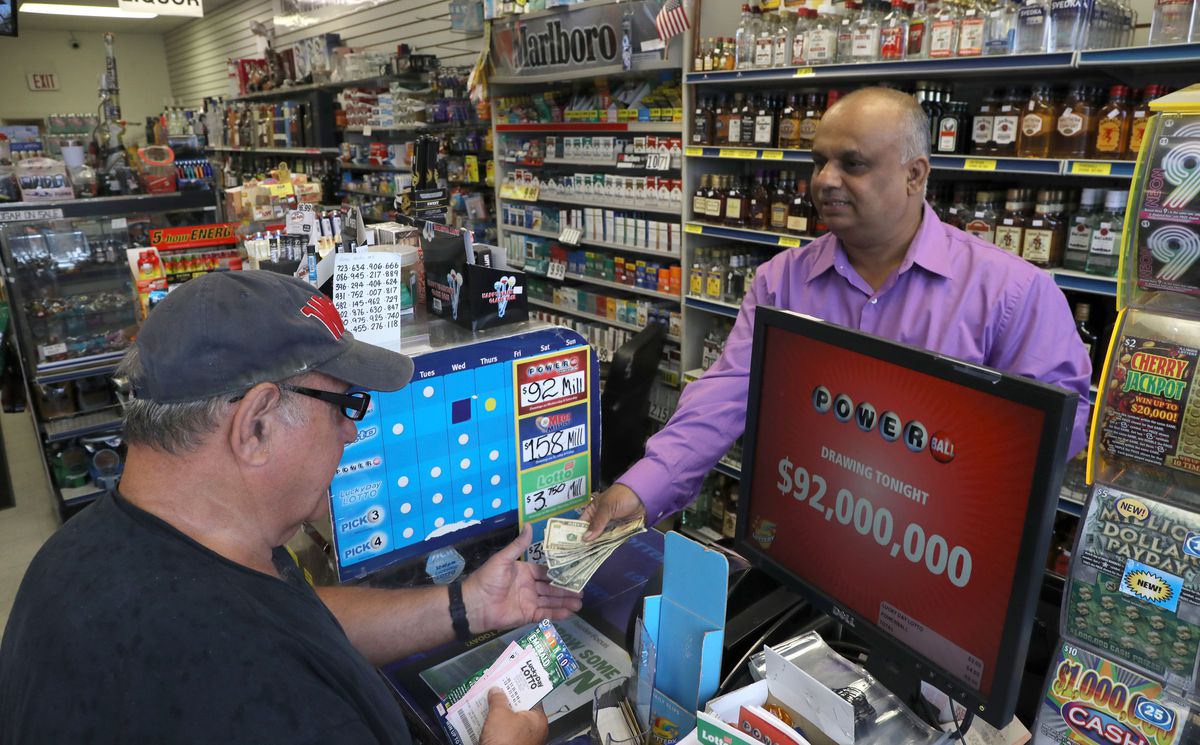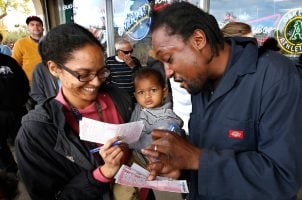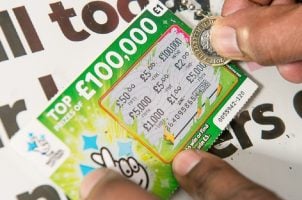Americans Spend Around $72B on Lottery Tickets Annually, Massachusetts Residents Play Most
Posted on: November 22, 2019, 01:00h.
Last updated on: November 22, 2019, 08:23h.
Americans love playing the lottery, and in 2017, US adults wagered $71.8 billion on tickets.

A recent report from 24/7 Wall St., a financial news outlet, reveals just how addicted Americans are to their lotteries. Using the most recent available statistics (2017) from the US Census Bureau and revenue information from state and multistate lotteries, the website tallied up the numbers to reveal which state is testing their luck the most.
Massachusetts took the top spot, the average adult spending $926.71 on lottery tickets in 2017. Fortunately, Massachusetts has the fourth-highest median household income at $79,835.
American author Ambrose Bierce famously wrote in his satirical “Devi’s Dictionary” that the lottery is “a tax on people who are bad at math.” Indeed, the odds of winning the Mega Millions jackpot are one in 302.5 million, and Powerball one in 292.2 million.
Regardless, many shun factual reality with big dreams of striking it rich. The $71.8 billion in 2017 lottery sales equates to about $285 per American adult.
Top Spenders, Top Losers
Staying in Massachusetts, lottery winnings totaled $3.7 billion in 2017, or $668.52 per adult. That means the average Bay State adult lost $258.19.
Rhode Islanders wagered the second-most per adult at $622.50. But they lost even more, as the average prize money awarded was just $184.16, a net loss of $438.34 per person. Delaware is the third and final state where lottery sales per person eclipsed $600 ($607.34).
Excluding states that don’t have a lottery, North Dakota residents spend the least amount of their money on the chance of becoming instantly wealthy. The average adult in the midwestern state wagered just $45.27 on 2017 lottery tickets. Oklahoma was the second-lowest at $51.02.
New York recorded the highest lottery revenue, sales totaling $8.3 billion. California was second ($6.2 billion), and Florida third ($5.8 billion).
Lottery Psychology
Numerous studies have found a correlation between lottery playing and low-income people.
Psychologists Daniel Kahneman and Amos Tversky – both Nobel Prize winners – are often cited when dealing with human irrationality. Their work on prospect theory concluded that people place a high value on the prospect of a low probability event occurring if the outcome would drastically alter their life. Hence, poor people play the lottery.
The economics of the lottery, money paid by taxpayers to the state, make clear that the lottery is a tax on people who are bad at math. Lotteries offer nothing but false hope and less money for those who need it most,” bankruptcy attorney Brian Lee explained.
Lee says the constant headlines of lottery winners delivers added false hope to players.
“We think it’s more likely that we can win if we hear about someone else winning. Seeing other people buying tickets and hearing about how much money the grand prize is worth whets our greed and grows the prize. Meanwhile, no matter how big the prize or how many people play, our chances of winning remain infinitesimal,” Lee added.
“You have a statistically insignificant chance of winning the lottery. In fact, you have no chance of winning. You should not play the lottery,” the attorney concluded.
Related News Articles
Most Popular
Sphere Threat Prompts Dolan to End Oak View Agreement
MGM Springfield Casino Evacuated Following Weekend Blaze
This Pizza & Wings Costs $653 at Allegiant VIP Box in Vegas!
Atlantic City Casinos Experience Haunting October as Gaming Win Falls 8.5%
Most Commented
-
VEGAS MYTHS RE-BUSTED: Casinos Pump in Extra Oxygen
— November 15, 2024 — 4 Comments -
Chukchansi Gold Casino Hit with Protests Against Disenrollment
— October 21, 2024 — 3 Comments -
VEGAS MYTHS RE-BUSTED: The Final Resting Place of Whiskey Pete
— October 25, 2024 — 3 Comments
















No comments yet